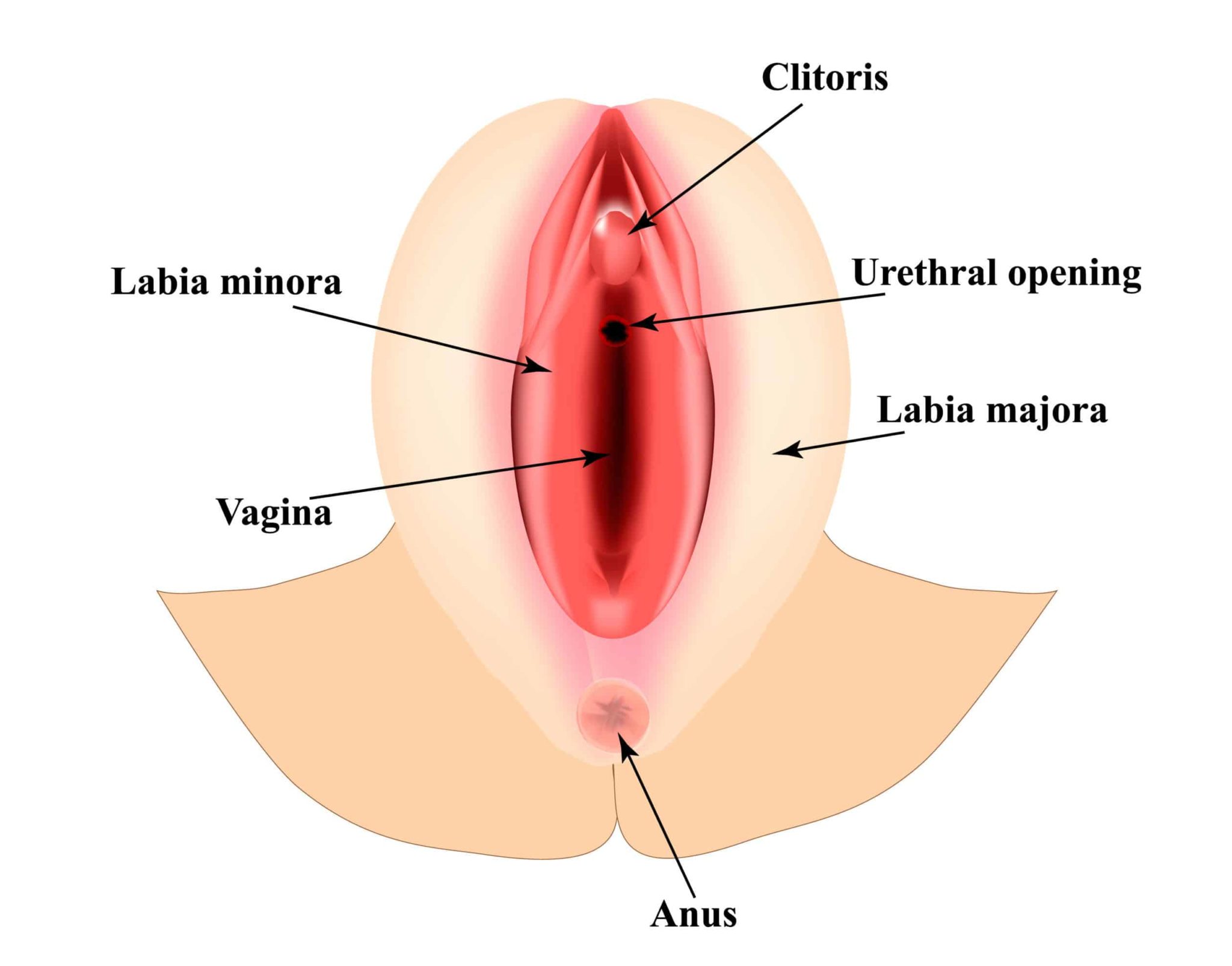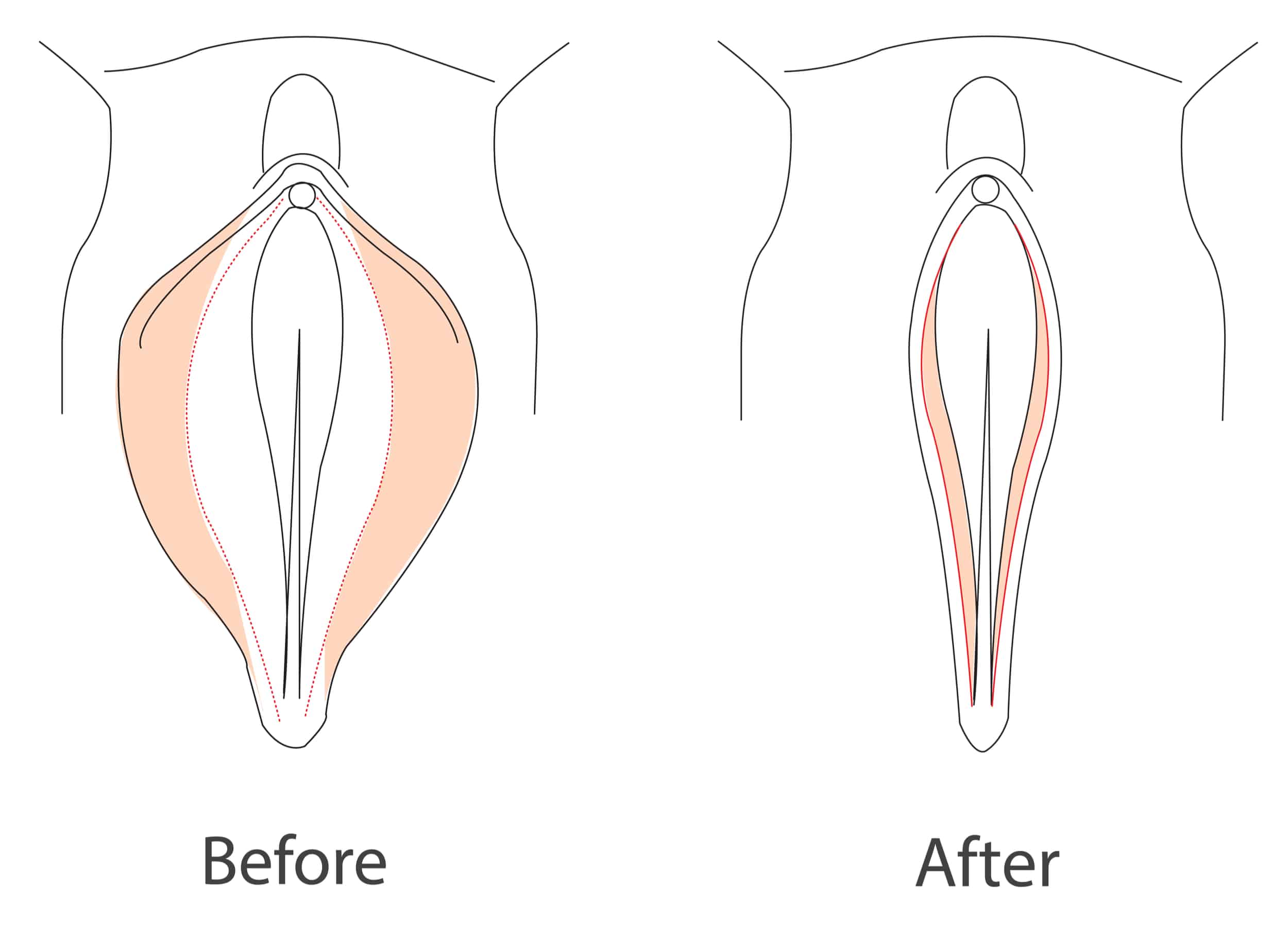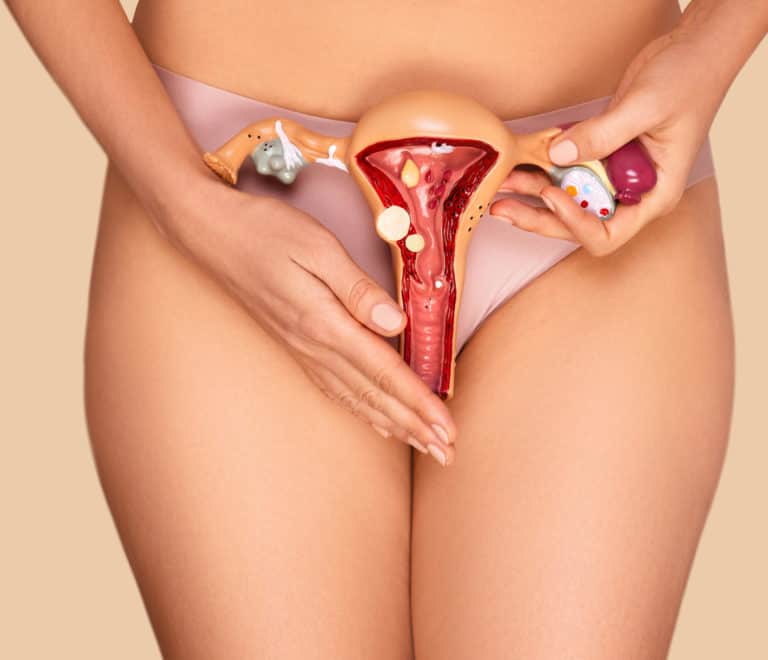Medically Reviewed April 2023, by Claire Clarke - Head of Surgical Services for The Harley Medical Group
Overview | Symptoms | Causes | Treatments | Labiaplasty | Summary | FAQs
Every part of the human body is unique, and it’s no different when it comes to female genitalia. The external area, known as the ‘vulva’, includes two sets of skin folds, or ‘lips’. The large outer folds are called the ‘labia majora’ and the smaller, inner folds are referred to as the ‘labia minora’.
Put simply, the labia are fat pads designed to protect a woman's clitoris and vagina from trauma. Often they aren’t symmetrical. Just like any other body part, there’s a broad spectrum of shapes, sizes, and skin tones. And it’s quite common for one to be longer or thicker than the other.

What is labial hypertrophy?
The term ‘labia hypertrophy’ can refer to two things. Firstly ‘labia majora hypertrophy’ describes when the outside lips are enlarged. Secondly, ‘labia minora hypertrophy’ is used to describe when the inside lips are larger (or stick out more) than the outside ones.
While the term ‘hypertrophy’ sounds scary—it is not an illness, and enlarged labia are usually purely aesthetic. In terms of appearance, more severe cases may create a noticeable bulge that can be seen through clothing, particularly swimwear. Understandably, this can make some women feel self-conscious.
There are no standard measurements for the size of labia, or tests to identify ‘big’ labia. If you are concerned about the appearance or feel of your labia, book a physical exam with a doctor or gynaecologist.
Labial hypertrophy symptoms
While most women don’t experience problems because of the size or shape of their labia, large labia can sometimes cause the following issues:
Irritation, discomfort and pain
Long labia can rub on your underwear—with chafing causing rough, irritated, and itchy skin. The labia minora are more sensitive, so large inner labia can be more uncomfortable than if the outer lips are affected.
Some women with enlarged labia can feel uncomfortable wearing tight clothing and experience pain during physical activities, especially those that put pressure or friction on the area, e.g. horseback riding and cycling. Foreplay and sex can cause discomfort or pain (dyspareunia). And in severe cases, even sitting and walking can be uncomfortable.
Hygiene issues
Excess sensitive skin can be difficult to clean and may therefore become a breeding ground for bacteria, particularly during menstruation. As a result, enlarged labia can sometimes cause odour and infections—such as thrush or UTIs.

What causes big labia?
There is no definitive cause for labial hypertrophy. For most women, it’s simply aesthetic—like having different-sized breasts.
Some women are born with asymmetrical, looser vaginal lips, or extra skin tissue. And for others, these things can develop during periods of hormone fluctuations. For example, puberty can be a time when labia minora grow larger. During pregnancy, increased blood flow to the genital area can affect the labia by increasing pressure, while childbirth may cause them to become distended.
Labial hypertrophy also occurs with age, as the skin loses its elasticity. After menopause, the level of female hormones (oestrogen and progesterone) declines because ovarian function ceases. This causes the skin to sag—including the labia, which can become thinner and looser.
Labial hypertrophy can occur due to infection or trauma to the area. However, it is not caused by masturbation and is not a sexually transmitted infection.
Treatments
In most cases, labia hypertrophy does not require treatment, it’s simply an aesthetic difference like any other. But for those women who experience discomfort, some very simple changes can eliminate their symptoms.
Avoiding harsh hygiene products
Irritation can be reduced by using a hypoallergenic soap that is free from harsh chemicals and perfumes, as well as ensuring you only use unscented tampons and sanitary towels. Wearing loose-fitting underwear and clothing may also help prevent unnecessary friction—with natural materials (such as cotton or linen) improving airflow.
Cushioning the area
Another simple fix is wearing a protective pad or using a cushioned seat when doing physical activities like cycling. You may want to carefully position the labia where they will be most comfortable before you exercise. This technique may also help when wearing clothing that could make you feel more self-conscious, e.g. a swimming costume or bikini.
Topical creams and ointments
It’s worth visiting your doctor to discuss any symptoms, as they may be able to offer some solutions (e.g. a topical ointment to relieve irritation).
Cosmetic surgery
Unfortunately, simple lifestyle changes aren’t enough to help some women experiencing the physical symptoms of enlarged labia. Equally, others may feel that they are suffering from ‘large labia anxiety’ because of how the area looks. If labia hypertrophy is affecting your life by impacting your physical or mental health, you may wish to consider labia reduction with one of our experienced surgeons.
Cosmetic surgery carries risks like all medical procedures. It should therefore be undertaken by consenting, informed adults for the right reasons. Our practitioners will always discuss exactly what will happen during each procedure and answer any questions you may have, so you can make the right choice for your body.
Labiaplasty
Labia reduction surgery or ‘labioplasty’ is a procedure that alters the size of the labia minora (inner lips) and takes around an hour to complete.
During this time, your cosmetic surgeon makes small incisions to reduce or correct the shape. As the incisions made during labiaplasty are small, they should heal quickly and not be very noticeable.
It’s recommended that you book a week off work for labioplasty surgery and abstain from sex until you are fully healed. This should take around three to four weeks.

Labiaplasty before and after

When to see a doctor
When labial hypertrophy isn’t causing a problem, you don’t need treatment as it’s not harmful to your overall health. However, if it’s interfering with your ability to enjoy physical activities—or the appearance is causing you distress—you may want to book an appointment to see your doctor or gynaecologist.
It’s important to keep an eye out for any changes in your body, including the labia. While the labia minora can swell during sex, contact your doctor if they do not return to normal size soon after.
Another problem affecting the labia is Bartholin gland cysts. The Bartholin glands are located close to the opening of the vagina and their job is to provide lubrication. When they get blocked this can cause a cyst or abscess. As with any lump, it’s important to book an appointment to see your GP if you discover one in the vulva area.
If you’re concerned about your labia for any reason, or you notice any changes, always speak to a doctor.
Speak to a patient advisor
Key takeaways
- Labial hypertrophy (enlarged vaginal lips) is common amongst women, its likelihood increasing with age
- Some women are born with naturally large outer labia—or protruding, large inner labia. However, most find that it’s triggered by factors such as puberty, pregnancy, childbirth, menopause, illness, medications, and ageing.
- In most cases, it doesn’t cause any problems. However, some women may find that it affects their day to day life and self-confidence
There are some very simple, effective ways to improve comfort outlined above—but labia reduction surgery may be considered where there is a major impact on physical or mental wellbeing.
Related Conditions

Loose Vagina
Although vagina shape and size can differ, most women who feel that they have a 'loose vagina', are usually referring to the fact that their vaginal muscles don’t feel as tight as they are used to, as opposed to a condition they were born with.

